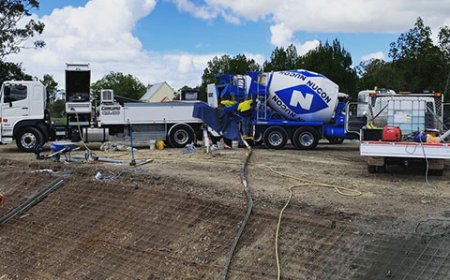The Importance of Office Furniture in Creating a Productive Workspace
Office furniture plays a crucial role in shaping the work environment and significantly influences employee productivity and well-being. A well-designed office space equipped with ergonomic and functional furniture creates an atmosphere conducive to focus, creativity, and collaboration. Whether its desks, chairs, storage units, or conference tables, each piece contributes to how effectively tasks are completed and how comfortable employees feel throughout their workday. Companies that invest in quality office furniture often see improvements in employee morale, reduced health-related absenteeism, and enhanced overall performance.
Key Factors to Consider When Selecting Office Furniture
Choosing the right office furniture involves more than just picking pieces that look good. Several essential factors must be considered to ensure that the furniture meets the needs of the workforce and complements the office layout. One of the primary considerations is ergonomics. Furniture should be designed to support the human body, promoting comfort and reducing strain during long hours of work. For example, desks with adjustable heights can accommodate different user preferences, while chairs with lumbar support can alleviate back discomfort.
Another critical factor is functionality. Office furniture must facilitate workflow and provide practical storage solutions. Desks with built-in cable management systems help keep wires organized and reduce clutter. Filing cabinets and shelves should be easily accessible to ensure quick retrieval of important documents. Modular furniture systems that can be reconfigured as the company grows or changes focus offer flexibility and longevity.
Durability and material quality are also vital considerations. Office furniture endures constant use, so investing in sturdy materials like solid wood, metal, or high-quality composites ensures a longer lifespan. Moreover, furniture that is easy to clean and maintain helps preserve a professional environment. Sustainability is becoming increasingly important, with many businesses opting for eco-friendly furniture made from recycled or renewable materials.
How Office Furniture Influences Employee Well-being and Efficiency
The physical environment in which employees work directly impacts their mental and physical health. Poor office furniture choices can lead to discomfort, fatigue, and even long-term health problems. Conversely, ergonomically designed office furniture can enhance comfort, reduce stress, and boost concentration. Comfortable seating that supports proper posture helps prevent musculoskeletal disorders, which are common in office settings.
Moreover, the layout and arrangement of office furniture affect social interactions and collaboration. Open-plan offices with flexible seating encourage communication and teamwork, while private workstations offer quiet spaces for focused tasks. Providing a variety of furniture types, such as lounge chairs, standing desks, and communal tables, caters to diverse work styles and promotes a healthy balance between collaboration and individual work.
Lighting and aesthetics also contribute to a positive office atmosphere. Furniture that reflects a companys brand identity and culture can instill pride and motivation among employees. Bright, well-organized spaces furnished with contemporary office furniture inspire creativity and innovation.
Trends in Modern Office Furniture Design
Office furniture design is constantly evolving to meet changing work habits and technological advancements. One notable trend is the rise of sit-stand desks, which allow workers to alternate between sitting and standing positions, improving circulation and reducing the risks of sedentary behavior. Another trend is the integration of smart furniture equipped with technology like wireless charging stations, built-in speakers, and USB ports, making it easier for employees to stay connected and productive.
Collaborative workspaces have become popular, featuring modular furniture that can be easily rearranged for meetings, brainstorming sessions, or casual conversations. These spaces often include comfortable seating options like bean bags, sofas, and adjustable tables that foster creativity and teamwork.
Sustainability remains a significant focus, with manufacturers producing office furniture using environmentally responsible methods and materials. This shift reflects growing corporate responsibility toward reducing environmental impact and promoting healthier workplaces.
The Role of Office Furniture in Different Work Environments
Different types of work environments demand tailored office furniture solutions. For traditional corporate offices, classic desks, ergonomic chairs, and filing systems remain staples. These environments benefit from furniture that supports focused work and formal meetings. In contrast, creative agencies and startups often prefer flexible, open layouts with multifunctional furniture that encourages interaction and spontaneity.
Home offices have surged in popularity, especially following global shifts toward remote work. Selecting office furniture for home spaces involves balancing functionality with limited space constraints. Compact desks, ergonomic chairs, and efficient storage solutions help create productive home workstations that mimic professional office settings.
Co-working spaces require versatile furniture that accommodates a wide range of users and work styles. Durable, easy-to-clean furniture with adaptable configurations ensures comfort and usability for freelancers, small teams, and visiting professionals.
Practical Tips for Maintaining Office Furniture Longevity
Maintaining office furniture is essential to protect investment and ensure a safe, pleasant work environment. Regular cleaning using appropriate products helps preserve material integrity and appearance. For example, wooden surfaces should be dusted and polished periodically, while upholstered chairs require vacuuming and stain treatment.
Inspecting furniture regularly for wear and tear, loose screws, or damaged parts helps prevent accidents and extends furniture lifespan. Prompt repairs or replacements reduce disruptions and maintain workplace safety.
Encouraging employees to use furniture correctly also contributes to durability. Providing guidelines on adjusting chairs or desks and discouraging misuse minimizes damage and promotes ergonomics.
Conclusion: Investing Wisely in Office Furniture
Office furniture is more than just functional items; it shapes the overall work experience and impacts employee satisfaction and productivity. Selecting ergonomic, durable, and aesthetically pleasing furniture tailored to the companys needs and culture creates an environment where employees can thrive. Staying informed about trends and focusing on sustainability ensures that the office space remains modern and responsible.
By prioritizing Office furniture businesses demonstrate a commitment to creating a healthy, efficient, and inspiring workplace. Whether furnishing a large corporate office, a cozy home workspace, or a dynamic co-working environment, the right furniture choices play a pivotal role in success. For those seeking expert advice and quality options, trusting the brand office furniture provides reliable solutions that blend style, comfort, and functionality seamlessly.
































































